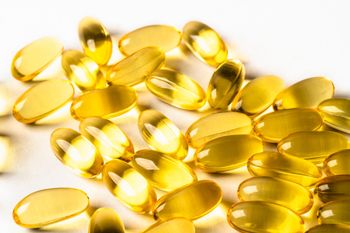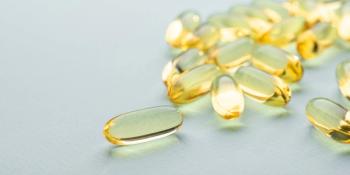
Omega-3, CoQ10 May Benefit Prostate Health, Study Shows
EPA omega-3 fatty acid and CoQ10 may significantly reduce prostate-specific antigen (PSA) levels in normal healthy men.
Omega-3 fatty acid eicosapentaenoic acid (EPA) and coenzyme Q10 (CoQ10) may significantly reduce prostate-specific antigen (PSA) levels in normal healthy men, according to an Iranian study published in the
The randomized, double-blind study on 504 healthy men set out to determine whether omega-3 fatty acids, omega-6 fatty acids, or CoQ10 could alter serum PSA levels. For 12 weeks, subjects were randomly assigned to a dietary supplement of two capsules, twice daily, of placebo, omega-3 (1.2 g of EPA omega-3 and 0.72 g of docosahexaenoic acid, or DHA, omega-3 per capsule), omega-6 fatty acids (600 mg of gamma-linolenic acid, or GLA, per capsule), and CoQ10 (100 mg per capsule). Serum levels of PSA, EPA, DHA, GLA, lipid profile, and reproductive hormones were measured.
According to researchers, EPA significantly reduced serum PSA levels by 30% from baseline, and CoQ10 supplementation reduced serum PSA levels by 33%. However, supplementation with GLA significantly increased PSA levels by 15%.
The omega-3 supplement used in the study was Epax 5500 TG, an omega-3 triglyceride concentrate from omega-3 supplier Epax AS (Oslo, Norway). The CoQ10 was the Nutri Q10 brand.
Newsletter
From ingredient science to consumer trends, get the intel you need to stay competitive in the nutrition space—subscribe now to Nutritional Outlook.





